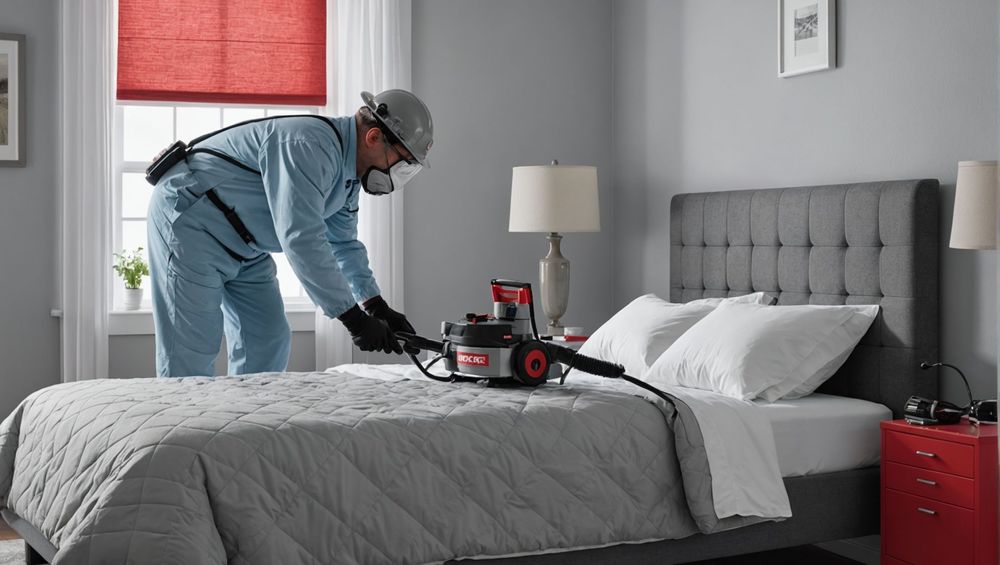Bed bugs are tiny, nocturnal pests that feed on human blood, leaving itchy bites in their wake. You may wonder if there’s anything in nature that preys on these pesky insects. While several species can help control bed bug populations, they are not commonly targeted by many predators. In this article, we will explore various creatures that eat bed bugs and methods to manage infestations effectively.
Natural Predators of Bed Bugs
Several organisms serve as natural antagonists to bed bugs, providing some level of ecological control. These predators are generally not sophisticated hunters of bed bugs in domestic environments, but they can still play a role in reducing their numbers in certain conditions. Some of the primary natural enemies include:
- Geckos: These small lizards thrive in warm climates and are known for their insect-eating habits. They may consume bed bugs if they come across them.
- House spiders: Spiders can catch bed bugs in their webs, although they may not specifically hunt for them.
- Ants: Some ant species will eat bed bugs, particularly those that nest in similar environments. They often forage for food and recognize bed bugs as a potential meal.
- Centipedes: This multi-legged critter is a ferocious predator that can hunt and consume bed bugs along with a variety of other insects.
- Bed Bugs’ Parasites: Certain parasitic nematodes can infect bed bugs, damaging their life cycle.
Commercial Solutions for Bed Bug Control

While natural predators can assist in controlling bed bug populations, they are not sufficient for eradication. Homeowners typically rely on commercial solutions to effectively manage infestations. Methods for controlling bed bugs include:
- Pesticides: Insecticides formulated specifically for bed bugs can kill adults, nymphs, and eggs. Effective products often contain pyrethroids or desiccants.
- Heat Treatment: Raising the temperature of a room or household items to at least 120°F is lethal for bed bugs and their eggs.
- Vacuuming: Frequent vacuuming can physically remove bed bugs from surfaces and cracks, but remember to dispose of the vacuum bag immediately.
- Steam Cleaning: High-temperature steam cleaners can penetrate furniture and carpets, killing bed bugs on contact.
- Covers and Encasements: Bed bug-proof mattress and box spring encasements can trap and prevent infestations from spreading.
Using Biological Control Methods
Biological control methods utilize natural organisms to manage pest populations, including bed bugs. While this strategy is less conventional, it is gaining traction as an eco-friendly alternative to harsh chemicals. Some biological methods for bed bug control involve:
- Nematodes: Certain species of nematodes specifically target and kill bed bugs, making them a promising biological control agent.
- Predatory Mites: Although less common, some mite species have shown potential to feed on small insects, including bed bugs.
- Microbial Control: Beneficial bacteria or fungi can kill bed bugs; however, research is ongoing to develop these solutions effectively.
Prevention Tips to Manage Bed Bug Infestations

Prevention is crucial in managing bed bug problems, especially after eliminating an infestation. To minimize the chances of re-infestation or first-time occurrence, consider the following tips:
- Regular Inspections: Routinely check your sleeping areas, clothing, and luggage, especially after traveling.
- Seal Cracks and Crevices: Fill in gaps around windows, doors, and flooring to eliminate potential hiding places.
- Reduce Clutter: Keeping your living spaces tidy makes it harder for bed bugs to hide and reproduce.
- Monitor Second-Hand Items: Inspect and clean used furniture or goods before bringing them into your home.
- Educate Yourself: Stay informed about bed bug identification and behaviors to catch infestations early.
Conclusion
In summary, while a variety of natural predators can eat bed bugs, their effectiveness is limited, particularly in residential environments. Instead, homeowners are encouraged to utilize commercial pest control methods and biological treatments for effective management. Implementing preventive measures can significantly reduce the likelihood of bed bug infestations reoccurring. Remember, knowledge is a powerful tool when it comes to understanding and managing these pervasive pests.
FAQs
1. Can bed bugs be completely eliminated?
Yes, with the right combination of methods including heat treatment, pesticide applications, and preventive measures, bed bugs can be completely eliminated from your home.
2. Are bed bugs harmful to health?
While bed bugs can cause itchy bites and allergic reactions, they are not known to transmit diseases to humans.
3. Do bed bug traps work effectively?
Bed bug traps can be helpful in monitoring and capturing bed bugs, but they are best used in conjunction with other control methods for complete management.
4. How can I keep bed bugs from spreading in my home?
Isolating infested items, regularly inspecting sleeping areas, and practicing good hygiene can help prevent the spread of bed bugs in your home.
5. What should I do if I find bed bugs while traveling?
If you find bed bugs while traveling, immediately inform the hotel management, inspect your belongings, and wash clothes at high temperatures upon returning home.


